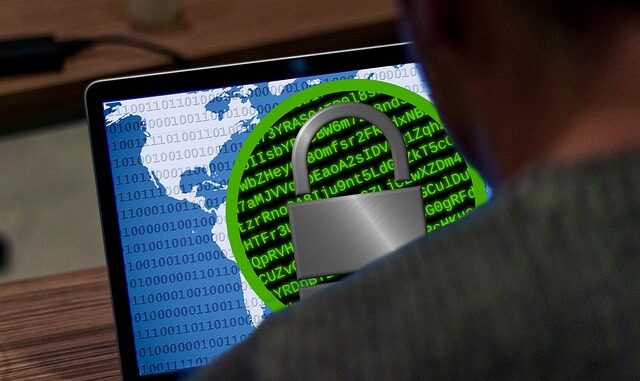
Summary
Two Russian nationals face charges for using Phobos ransomware, targeting over 1,000 entities and extorting $16 million. Their arrests are part of a global law enforcement operation that disrupted the ransomware group’s infrastructure. This operation also included the seizure of 8Base’s dark web sites.
Explore the data solution with built-in protection against ransomware TrueNAS.
** Main Story**
In a major win against cybercrime, international law enforcement just took down two Russian nationals tied to the Phobos ransomware operation. Roman Berezhnoy, 33, and Egor Nikolaevich Glebov, 39, are facing charges for their alleged roles in attacks against over 1,000 organizations worldwide. Can you imagine? The attacks led to a staggering $16 million in ransom payments. Plus, the operation seized websites linked to 8Base, another ransomware group connected to Phobos. These arrests, part of a coordinated disruption, are a significant blow to the Phobos ransomware network. I mean, it’s about time, right?
Operation Details and the Charges Laid Out
So, Berezhnoy and Glebov allegedly worked as affiliates of the Phobos ransomware, using aliases like “8Base” and “Affiliate 2803.” Their targets? A really diverse bunch, it seems. A children’s hospital, healthcare providers, educational institutions and more. It makes you sick, doesn’t it? The suspects allegedly broke into victims’ computer networks, stole sensitive files, and then encrypted everything with the Phobos ransomware. After that, they demanded ransom for decryption keys, threatening to release the stolen data if their demands weren’t met. Disgusting.
The Justice Department unsealed the charges against Berezhnoy and Glebov, detailing their alleged involvement in the ransomware scheme. The international operation involved a massive collaborative effort between law enforcement agencies from multiple countries. Thailand, Romania, Germany, Switzerland, Japan, the USA, the UK, and others, as well as Europol were involved. This coordinated effort aimed to take down the Phobos ransomware infrastructure and bring those responsible to justice.
Why This Arrest Matters, and What It Means for Ransomware’s Future
These arrests are huge for the fight against ransomware. They show that international collaboration actually works in combating cybercrime. Taking down Phobos’ operations will, hopefully, make a real dent in their ability to launch future attacks. That said, the fight against ransomware is far from over. Ransomware remains a persistent threat, and cybercriminals? They’re constantly adapting their methods. For instance, just last year, a friend of mine’s company was hit. Luckily they had good backups, but the stress it caused was immense.
Understanding the Phobos Threat
Phobos, which first popped up around 2019, primarily targets small to medium-sized businesses. It isn’t as widespread as some other ransomware families, but it’s still a major threat. Phobos spreads through various channels, including phishing emails, software vulnerabilities, and remote desktop protocol (RDP) exploits. Victims usually find their files encrypted with a “.phobos” extension and receive ransom demands ranging from a few thousand to hundreds of thousands of dollars. Can you imagine getting that kind of demand?
How to Protect Yourself, and Your Company
Individuals and organizations can take several steps to protect themselves from ransomware attacks. What steps you ask? Well:
- Maintaining regular data backups is absolutely critical for recovery. It can literally save your business.
- Keeping software up-to-date is crucial for patching vulnerabilities that ransomware exploits.
- Strong passwords and multi-factor authentication add an extra layer of security. Don’t skip this.
- Employee education on phishing scams and suspicious emails is also super important for preventing initial infections.
- And lastly, investing in robust cybersecurity solutions can really help detect and mitigate ransomware threats.
Look, the fight against ransomware never really ends. However, these measures can dramatically reduce the risk of becoming a victim. Trust me, it’s worth the effort. Don’t be the low hanging fruit.
The Legal Side of Things
Berezhnoy and Glebov are currently in custody, waiting for the legal process to play out. If they’re convicted, they’re looking at some serious prison time. Successfully prosecuting these guys will send a strong signal to other ransomware operators. It tells them law enforcement is coming after these criminal networks and taking them down. This whole operation highlights the dedication of international law enforcement to fighting cybercrime and protecting everyone from the terrible consequences of ransomware attacks. I, for one, am glad to see it.


The diversity of targets, including hospitals and schools, highlights the indiscriminate nature of ransomware attacks. Beyond the financial impact, the potential disruption to essential services raises serious ethical questions about the motivations and consequences of these cybercrimes.
That’s a really important point. The ethical implications are huge when essential services like hospitals are targeted. It highlights the urgent need for stronger cybersecurity measures to protect these critical infrastructures. It’s not just about the money, it’s about people’s lives and well-being!
Editor: StorageTech.News
Thank you to our Sponsor Esdebe